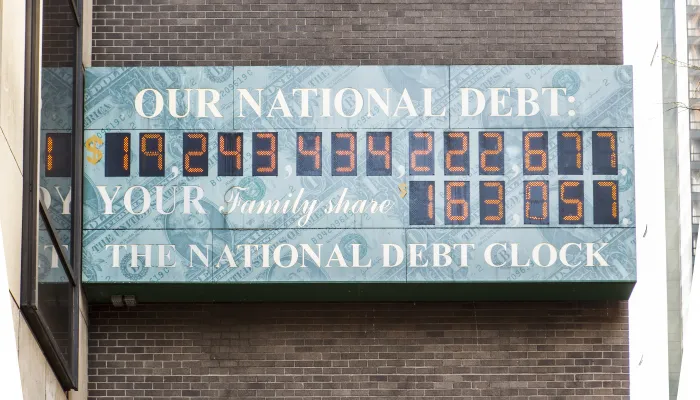Bowles: National Debt Threatens U.S. Innovation
In an interview with Forbes contributor Henry Doss, former Fiscal Commission co-chair Erskine Bowles explains just how our unsustainable debt trajectory threatens the future of U.S. innovation and may be preventing some businesses from investing due to the uncertainty.
First, Bowles says that debt and deficits really do deserve the center stage:
Of course there’s a danger in talking about our debt in overblown terms, because sooner or later folks will just tune you out. At the same time it’s hard not to be aggressive about how we frame this conversation. But let me be clear: Our debt levels and the economic uncertainty they cause affect every single aspect of our business environment. I think this is the defining issue of our times.
He explains that the reason why it may be difficult to get a deal is that people have a hard time connecting very high debt levels with tangible consequences, though there clearly would be. Debt would crowd out government investments and hurt U.S. competitiveness abroad. Bowles:
When I think about the consequences of debt, I think about things slowing down and grinding to a halt. Debt is a drag on everything. I think about companies considering investments in R & D, employee training, expansion, product investment...you name it. All of those components of innovation are going to be dramatically reduced when – as is almost inevitable – payback time comes for our debt. I just don’t see how we will be able to invest – time, capital, creative energy – in innovation if we are focused on survival.
America is now and has been the world leader for innovation, for growth, and for financial security. US debt is still seen as a safe haven. But the debt threatens to turn all that on its head. Sooner or later, I believe that the market will look at our financial position and just make a decision that enough is enough. And when that happens, we will lose access to capital, access to talent and access to customers. As we discussed earlier, it’s a mistake to talk in apocalyptic terms; but it’s difficult for me to see anything other than a really, really bad outcome for American innovation and competitiveness if we don’t get our financial house in order.
On a more positive note, Bowles presents the potential gains to be had if lawmakers do reach across the aisle and come to an agreement:
There aren’t magic or quick solutions to the debt. It’s been a long time coming and it will be a long time going. Any solution is going to be months and years in development and implementation. So, we shouldn’t expect something that will be sudden or dramatic. Good or bad. But I strongly believe that if we have the appropriate compromises in Washington; if tax reform and spending cuts are addressed responsibly, with shared pain as it must be; and if it becomes clear that our political leadership is on an honest path to addressing this issue; I think we will see what we would hope to be the case: less uncertainty and more market optimism; more investment, leading to growth; and much more opportunity for entrepreneurial risk and innovation.
Click here for the transcript of the interview.


